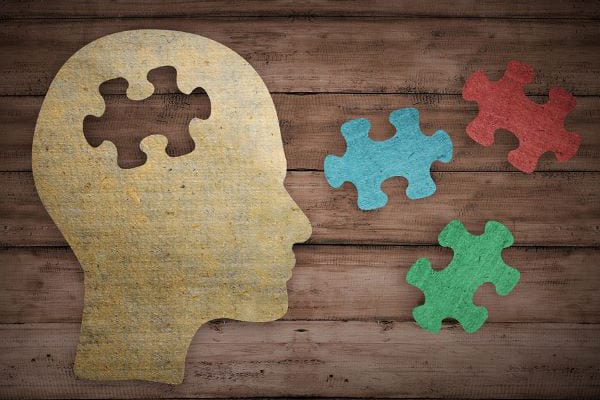A dual diagnosis means you have both a substance abuse problem and a mental health disorder. It can be difficult to manage both conditions, but treatment is available. And in order to get the most effective care, it’s important to find a treatment facility that specializes in dual diagnosis. They will be able to provide you with the resources and support you need to manage both your conditions. Treatment usually includes medication and behavioral therapy.

What Is a Dual Diagnosis?
A dual diagnosis is when you’ve been diagnosed with both a mental health disorder and a substance use disorder. This can be tricky to navigate because often the symptoms of one can worsen the symptoms of the other. For example, someone who struggles with anxiety may turn to alcohol to self-medicate and soothe their anxiety, but drinking alcohol will actually make the anxiety worse in the long run. That’s why it’s so important for those who have a dual diagnosis to seek out treatment that specifically addresses both issues. Treating only one of the disorders is not enough, as they are interconnected. Therefore, dual diagnosis treatment usually includes some combination of therapy, medication, and lifestyle changes.
Substance abuse and mental illness often go together. According to the National Institute on Drug Abuse, about 50% of people with substance use disorders also suffer from mental illness. There are a number of reasons why these disorders often occur together:
- People who are struggling with mental health issues may self-medicate with drugs or alcohol to try to relieve their symptoms.
- Substance abuse can lead to changes in brain chemistry that worsen pre-existing mental health conditions.
- People who grow up in environments where substance abuse is common are more likely to develop both substance abuse and mental illness.
There is no one-size-fits-all solution for treating co-occurring disorders, but integrated treatment programs that address both substance abuse and mental illness are often the most successful.
Is There a Difference Between Dual Diagnosis and Co-Occurring Disorders?
A dual diagnosis is when you’re diagnosed with both a mental illness and a substance abuse problem. Co-occurring disorders, on the other hand, refer to the presence of two or more conditions that can occur at the same time but are not directly related to each other. While the two terms are often used interchangeably, there is a key difference between them. Dual diagnosis implies that one condition is the cause of the other. Co-occurring disorders suggest that the two conditions are independent of each other. Many experts believe that treating co-occurring disorders is more effective than treating a single condition because it can help address all the underlying causes of your symptoms.
What Are Common Dual Diagnoses?
Dual diagnoses are common among people with substance abuse problems. Mental health disorders that commonly co-occur with substance use disorders include:
- Depression
- Anxiety
- Personality disorders
- Bipolar disorder
- Schizophrenia
- Post-traumatic stress disorder (PTSD)
People with substance use problems are more likely to have these disorders than people who do not abuse substances.
If you or someone you know is struggling with a dual diagnosis, it’s important to seek out professional help. A treatment facility that specializes in dual diagnosis will be able to create a tailored treatment plan that addresses both the substance abuse and the underlying mental illness.
What Are the Symptoms of a Dual Diagnosis?
Some signs that you have a dual diagnosis include:
- You have a hard time staying away from drugs or alcohol, even if you know they’re causing problems.
- You often feel like you’re in two different worlds: one where everything is okay and the other where everything is terrible.
- It’s difficult to control your impulses.
- You abuse drugs or alcohol to cope with feelings of anxiety or depression.
- Your mental health symptoms or substance use have led to problems in your personal or professional life.
- You’ve tried multiple times—unsuccessfully—to get treatment for substance abuse or mental illness.
- You have been diagnosed with a mental illness and a substance abuse disorder.
- You often experience mood swings or erratic behavior changes.
- You have problems with relationships and socializing.
If you’re struggling with addiction and have a mental health disorder, it’s important to get help from a dual diagnosis rehab center. You’ll receive treatment for both your addiction and your mental health disorder. This is important because treating just one condition puts you at higher risk for relapse.
What Is Dual Diagnosis Rehab Like?
There are different levels of care at dual diagnosis treatment centers, depending on your needs. You might start with inpatient rehab, which is when you stay at the treatment center full-time. Or you might start with outpatient rehab, which is when you go to the rehab center during the day and home at night.
The best way to treat a dual diagnosis is to treat both problems at the same time. This is called “integrated treatment.” Integrated treatment means you see a therapist or counselor for your mental health disorder and a doctor or other healthcare provider for your drug or alcohol problem. You might also see a nutritionist, social worker, and other professionals. Everyone works together to help you get better.
Integrated treatment is the best way to treat a dual diagnosis because it:
- Treats both problems at the same time
- Keeps both problems from getting worse
- Helps you recover faster
- Decreases your chance of relapse
Inpatient Treatment
If you have a dual diagnosis, inpatient treatment at a rehab center can help you get better. Inpatient treatment means you live at the rehab center while you’re getting treatment. This can be helpful because you can focus on getting better without getting distracted by anything else. Inpatient treatment programs at a treatment center for a dual diagnosis provide 24-hour care and supervision.
This level of care is ideal for people who have a mental health disorder and a substance use disorder because they are at a higher risk for relapse and dangerous behaviors.
Inpatient treatment centers have a wide range of services, including:
- Individual and group therapy
- Medication management
- Medical care
- Holistic approaches
- Recovery activities
Individual therapy gives you the chance to work on personal issues with a therapist one-on-one. Group therapy provides support and an opportunity to share your experiences with others who are going through similar issues.
Inpatient treatment programs usually last 28 days, but some people need to stay longer, depending on their progress in treatment.
Partial Hospitalization Program (PHP)
A partial hospitalization program (PHP) is a type of treatment program that is designed for individuals who need more intensive care than what they would receive on an outpatient basis. PHP programs are typically run by psychiatric hospitals or addiction treatment centers and provide a higher level of care than what is available through traditional outpatient services.
PHP programs usually last for six to eight weeks and include a variety of individual, group, and family therapy sessions, as well as medication management and other types of support. PHP programs are often used as a step-down from inpatient treatment or as a way to prevent relapses after completing an inpatient program.
Individuals in a PHP program live at home or in a sober living environment and attend treatment during the day, with evenings and weekends free. PHP programs can be an effective treatment option for individuals with dual diagnoses because they provide a higher level of care while still allowing you to maintain a level of independence.
Intensive Outpatient Program (IOP)
I ntensive outpatient programs (IOP) are designed to provide regular, structured treatment while still allowing you to live at home and work or attend school. Treatment typically includes group and individual therapy, as well as psychoeducation and skill-building sessions.
IOPs generally meet three to five days per week for three to four hours per day. Intensive outpatient programs provide a good transition from an inpatient or PHP program back into everyday life.
Outpatient Program
Most outpatient programs meet for one to three hours a week. They typically involve some combination of individual therapy, group therapy, and psychiatric care. Most outpatient programs also include some sort of educational component, which can help you learn more about your conditions and how to manage it.
What Therapies Are Used in Dual Diagnosis Rehab?
One of the most common therapies used in dual diagnosis rehab is cognitive behavioral therapy (CBT). CBT can help you identify and change negative thought patterns and behaviors that contribute to your addiction. It can also teach you coping and problem-solving skills to help you better manage triggers and stressors.
Other common therapies used in dual diagnosis rehab include dialectical behavior therapy (DBT), group therapy, individual therapy, and family therapy. DBT helps you develop healthy coping skills, while group and individual therapy provide support and allow you to process your experience in a safe and nurturing environment. Family therapy can be especially helpful in addressing communication and relationship issues that may be contributing to your addiction.
Ultimately, the goal of dual diagnosis rehab is to help you develop the tools you need to manage your symptoms and live a healthy, balanced life.
How Long Is Dual Diagnosis Treatment?
There is no one-size-fits-all answer to this question. The length of treatment will depend on a number of factors, including:
- Severity of your conditions
- Underlying causes
- Your response to treatment
- Your outside support system
In general, most people need to participate in dual diagnosis treatment for at least several months. This may include a short period in inpatient treatment followed by several months in outpatient programming. This gives you the time to detox from substances, learn new coping skills, and develop a solid plan for maintaining sobriety and managing mental health symptoms.

Does Insurance Cover Rehab for a Dual Diagnosis?
If you or a loved one is struggling with a dual diagnosis, you may be wondering if your insurance will cover the cost of rehab. The good news is that most insurance plans do cover rehab for a dual diagnosis, but there are a few things to keep in mind. First, you should make sure the rehab center you choose is accredited. Second, you will likely need to get pre-authorization from your insurance company before starting treatment. Third, your insurance company may require you to try other forms of treatment, such as medication or therapy, before they approve coverage for rehab. If you have any questions about your coverage, please don’t hesitate to reach out to us at Footprints to Recovery. We’re here to help.
Looking for Help?
At Footprints to Recovery our addiction treatment center offers comprehensive care for people struggling with substance abuse and mental health disorders. We understand that these conditions often occur together, and we offer the customized treatment that each individual needs. Our highly trained staff provides evidence-based care in a safe and supportive environment. We offer a variety of therapies and activities to help you heal physically, mentally, and spiritually. If you or someone you love is struggling with a dual diagnosis, please reach out for help. We are here to support you on your journey to recovery.
Questions about treatment options?
Our admissions team is available 24/7 to listen to your story and help you get started with the next steps.

